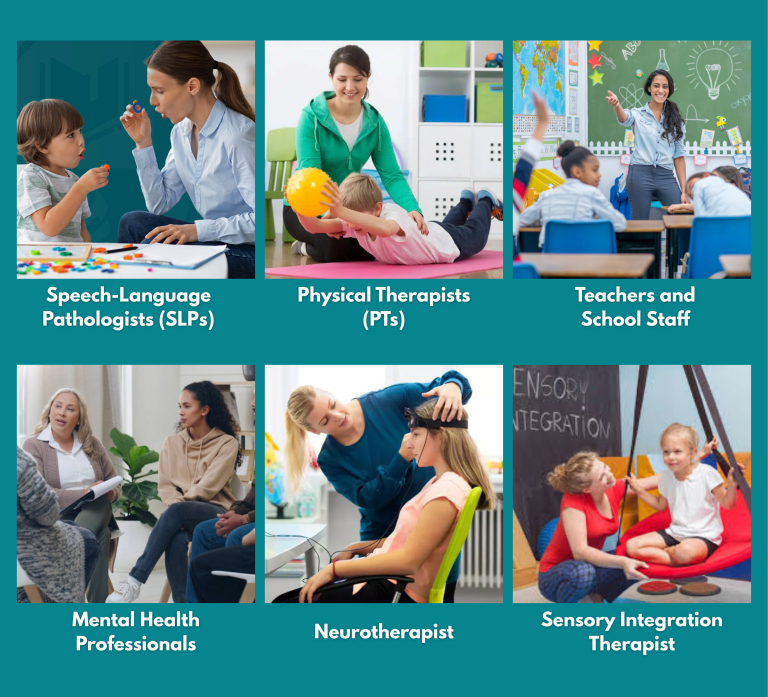One important way to strengthen this collaboration is through consultation with an Occupational Therapist (OT). OTs offer a unique perspective that focuses on how a child functions in everyday life, from attention and emotional regulation to motor skills, sensory processing, and participation in daily activities that matter most to the child.
In this blog, we’ll explore how consulting with an OT can enhance multidisciplinary care, offer helpful ideas for complex cases, and support ongoing professional development.
What is an Occupational Therapy Consultation?

An Occupational Therapy (OT) consultation is a collaborative process where an OT shares their expertise to support another professional’s work. This could include working with Speech and Language Pathologists, Physical Therapists, Educators, Mental Health providers, or even fellow occupational therapists.
Consultations can happen in many settings such as schools, clinics, homes, or virtually. They are often used when a child is showing signs of difficulty with things like sensory regulation, attention, behavior, or participation in activities of daily living. However, consultation is not always tied to one specific case. It can also involve providing general support, training, or education to help professionals build their knowledge and improve their approach across multiple clients or situations.
During a consultation, an OT might:
- Review notes, reports, or goals
- Collaborate with another professional to identify potential sensory or motor challenges
- Suggest tools, environmental modifications, or strategies
- Offer training or education
OT consultations are like a layer of support that helps everyone on the team better understand the “why” behind a child’s behavior or struggles and what can be done to help that child succeed in their daily life. It’s also a chance for professionals to grow their own skills and feel more confident in their practice.
The Benefits of OT Consultation

Who Should Consider Consulting an OT?
Occupational therapy consultations can benefit a wide range of professionals across various fields including:

Consulting with an OT can be a game-changer for professionals looking to enhance their practice and better support their clients. By working together, teams can gain valuable insights, refine their strategies, and approach challenges from new perspectives.
Whether it’s for a specific child or professional development, OT consultations are a step toward more effective, comprehensive care.
Interested in consulting with an OT to enhance your practice? You can schedule a consultation with our experienced Occupational Therapist! Click here to learn more: Consult and Mentorship – Sensory Innovation Therapies
